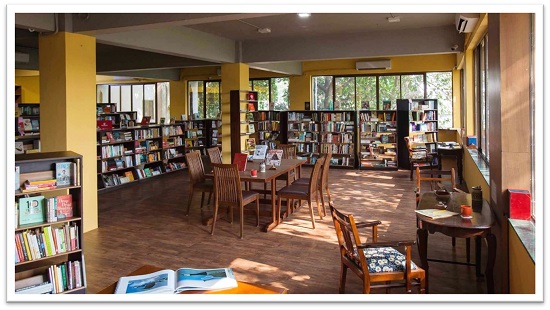
Maharashtra Unveils 75 Free Libraries at ST Bus Depots to Mark PM Modi’s 75th Birthday
Public transport in India has always been about more than mobility—it has been about dignity, accessibility, and social connection. Maharashtra is now adding another dimension to this story. Marking the 75th birthday of Prime Minister Narendra Modi, the Maharashtra State Transport Corporation (MSRTC) will establish free libraries at 75 major bus depots across the state. The initiative is as symbolic as it is practical: a convergence of transport infrastructure with cultural infrastructure.
In a country where daily commuters spend an average of 60–90 minutes in transit, public spaces like bus depots are not just waiting zones but potential learning spaces. By converting depots into ‘reading corners’, the state is democratizing access to books, offering both students and casual readers an opportunity to engage with literature and current affairs. The announcement, made by Transport Minister and MSRTC Chairman Pratap Sarnaik, reflects a growing belief that social policy must go beyond subsidies and services to foster intellectual capital.
The idea was first proposed by MP Shrikant Shinde and senior BJP leader Vinay Sahasrabuddhe as a people-centric tribute to the Prime Minister’s milestone year. Deputy Chief Minister Eknath Shinde has also linked the initiative to broader cultural programs designed to celebrate Modi’s contributions, particularly his support for granting classical status to the Marathi language.
Literature at the Heart of Public Spaces
Each library will showcase the richness of Marathi literature. Works of V.S. Khandekar, V.V. Shirwadkar (Kusumagraj), Narayan Surve, and P.L. Deshpande will share shelf space with novels by Namdeo Dhasal, Bhalchandra Nemade, Shankar Patil, V.P. Kale, and Vishwas Patil. These authors are not just literary figures but chroniclers of Maharashtra’s evolving society, weaving narratives that span from rural struggles to urban dilemmas.
In addition to fiction and poetry, the libraries will stock reference material for competitive examinations like the Maharashtra Public Service Commission (MPSC) and Union Public Service Commission (UPSC). This inclusion is particularly significant in a state where over 10 lakh aspirants appear annually for government exams. Providing access to relevant resources at no cost could make preparation more inclusive, especially for those from rural and semi-urban backgrounds.
Building Reading Habits in Transit
Citizens will be able to borrow books after registering with ST staff and return them after reading, making it a simple and accessible model. For commuters, this means their waiting time transforms into an opportunity to engage with meaningful content rather than idle scrolling. Newspapers will also be provided daily, ensuring access to current affairs—a vital addition in an age of fragmented information.
Sarnaik emphasized that all services under this initiative would remain free, describing the libraries as "knowledge-sharing hubs at the heart of public life." Officials hope that bus depots—visited by millions every month—will evolve from being mere transit points into cultural nodes.
Linking Policy with People
Public policy often falters when it overlooks the cultural and social aspirations of citizens. By integrating literature into everyday spaces, this initiative creates a bridge between governance and grassroots life. In many ways, it reflects a “nudge” approach: shaping behavior not through mandates but by creating environments where positive habits, such as reading, can flourish organically.
Moreover, the move aligns with India’s broader literacy and knowledge goals. According to the National Sample Survey, only 27 percent of Indians report reading books beyond textbooks. By situating libraries in everyday settings, Maharashtra is attempting to close this gap and nurture a more informed society.
A Landmark Moment for Public Literature
When these 75 libraries open simultaneously across the state, the event will represent more than a ceremonial gesture. It will underline a belief that the public sector can do more than provide mobility—it can also provide meaning. As Maharashtra transforms its depots into learning spaces, it offers a template for other states to follow: where infrastructure serves not just as a bridge to destinations but as a gateway to ideas.





